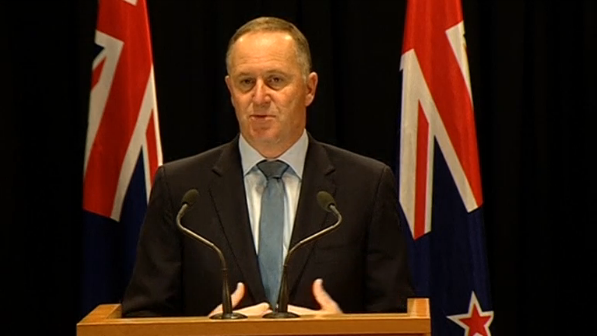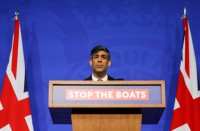
WELLINGTON, New Zealand (Reuters) – New Zealand Prime Minister, John Key, on Tuesday (April 5) threw his support behind his predecessor, Helen Clark, following her announcement she would campaign to be the next United Nation secretary-general.
New Zealand submitted a letter on Monday to the president of the 193-member General Assembly formally nominating Clark, who heads the U.N. Development Program, as a candidate to succeed Ban Ki-moon as secretary-general.
“There are major global challenges facing the world today and the United Nations needs a proven leader who can be pragmatic and effective. Having served as the prime minister of New Zealand for nine years and holding one of the top jobs in the United Nations for the past seven years, Helen has the right mix of skills and experience for the job. Coming from New Zealand, Helen is well placed to bridge divisions and indeed to get results. She has a vast amount of experience in international affairs, she is a great listener and a tremendous communicator,” Key told reporters in Wellington on Tuesday.
During the announcement, the former New Zealand prime minister pledged to improve transparency and touted her leadership experience in a bid to become the first woman to head the world body.
Key said Clark was well qualified for the UN’s top job.
“If you think about the role of the secretary-general of the United Nations, it is the most important diplomatic role in the world. This is the body that shows leadership on behalf of the globe, and I think if you look at Helen Clark, it isn’t just the time that she spent in New Zealand as prime minister where she was very dedicated to foreign policy or her time actually at the UNDP (United Nations Development Programme), it’s actually her entire life has been dedicated to foreign policy. That’s been her area of great passion and interest. She is immensely knowledgeable and incredibly talented and I think there’ll be a lot of people on, you know who ultimately will have to make a call, who will look at her and say this is a person that has great intellect and a deep understanding of the issues,”
Key added.
Ban, a former South Korean foreign minister, will step down at the end of 2016 after two five-year terms. The top job at the United Nations has always been held by a man, since the body’s inception 70 years ago, and there is a strong push for a woman to be elected.
At least 53 countries, led by Colombia, want a female secretary-general. Several civil society groups are also lobbying for a woman to lead the organization.
Clark is currently up against seven candidates, including three other women: U.N. cultural organization (UNESCO) Director-General Irina Bokova of Bulgaria; Croatia’s former Foreign Minister, Vesna Pusic; and Moldova’s former Foreign Minister, Natalia Gherman.
The other four candidates are former Macedonian Foreign Minister Srgjan Kerim, Montenegro Foreign Minister Igor Luksic, former Slovenian President Danilo Turk and former U.N. High Commissioner for Refugees Antonio Guterres, who is also a former Portuguese prime minister.
Clark’s candidacy will come as a major blow to ambitions of former Australian Prime Minister Kevin Rudd, who has been reported to be eyeing the top U.N. job.
The 15-member U.N. Security Council, including veto powers China, Russia, the United States, Britain and France, will recommend a candidate for election by the General Assembly later this year to succeed Ban.
The General Assembly will hold a series of informal public meetings with each candidate next week.






